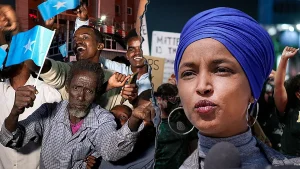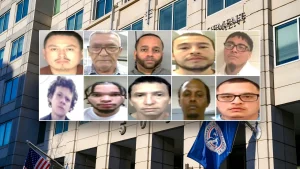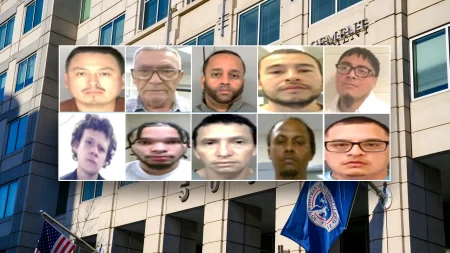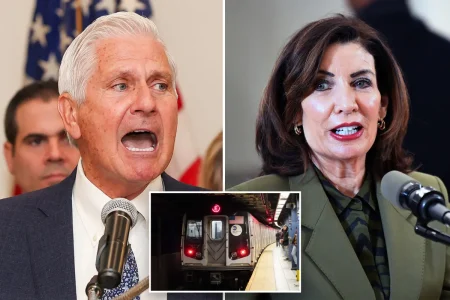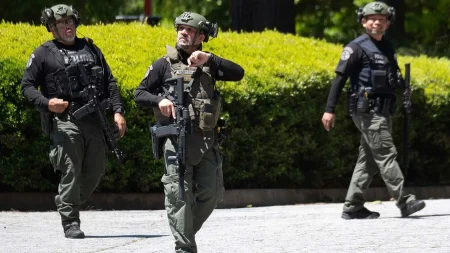Brazil’s Judiciary Clashes with Legislature Over Bolsonaro’s Unprecedented 27-Year Sentence
Political Earthquake Shakes Brazilian Democracy as Former President Faces Decades Behind Bars
In a stunning development that has sent shockwaves through Latin America’s largest democracy, Brazil’s Supreme Federal Court has sentenced former President Jair Bolsonaro to an extraordinary 27 years in prison, triggering immediate political fallout and raising profound questions about the separation of powers in the nation’s young democratic system. The unprecedented ruling against a former head of state has transformed Brazil’s political landscape overnight, with congressional leaders already mobilizing to challenge what they characterize as judicial overreach. As Bolsonaro’s supporters rally in major cities across the country, the case has evolved from a legal proceeding into a constitutional crisis that threatens to define Brazilian politics for years to come.
The court’s decision follows a lengthy and contentious trial that examined Bolsonaro’s conduct during his four-year presidency, particularly actions related to his handling of the COVID-19 pandemic, alleged interference in police investigations, and statements made before and after the 2022 election that prosecutors argued undermined democratic institutions. In delivering the sentence, Chief Justice Rosa Weber described the former president’s actions as “a systematic assault on democratic principles that form the foundation of our republic.” The 11-member court’s 7-4 ruling included a comprehensive 387-page decision that meticulously documented what the majority viewed as “repeated and deliberate violations of constitutional order” by the former leader, who rose to power in 2018 on a wave of populist sentiment and governed as a divisive figure until his narrow electoral defeat to current President Luiz Inácio Lula da Silva.
Within hours of the verdict, the Brazilian Congress erupted in fierce debate, with Bolsonaro’s substantial bloc of supporters in both the Chamber of Deputies and Senate immediately proposing legislative measures to counteract the court’s decision. Congressional President Arthur Lira, while careful to express respect for judicial independence, announced the formation of a special committee to examine what he termed “constitutional remedies” to address the situation. “The legislature must fulfill its role as a counterbalance in our system of governance,” Lira stated in a hastily called press conference. “While we respect the judiciary as a co-equal branch of government, we cannot abdicate our responsibility to ensure that justice is applied with proportionality and in accordance with democratic principles.” Multiple legislative proposals have already emerged, including a controversial amnesty bill, constitutional amendments to limit judicial powers in political cases, and even a measure that would redefine the parameters of presidential immunity for actions taken while in office.
The political and social ramifications of Bolsonaro’s sentencing extend far beyond the halls of government, igniting passionate responses across Brazilian society. In São Paulo, Rio de Janeiro, and Brasília, tens of thousands of supporters have taken to the streets, many wearing the yellow and green of the Brazilian flag that became synonymous with Bolsonaro’s movement. These demonstrations have largely remained peaceful, though security forces remain on high alert following the January 8, 2023 riots that saw Bolsonaro supporters storm government buildings in scenes reminiscent of the U.S. Capitol attack. Political analysts note that the severe sentence may transform the controversial former president into a martyr figure for his base, potentially strengthening rather than diminishing his movement. “This ruling doesn’t end Bolsonarismo—it may actually strengthen it,” explained Dr. Maria Helena Santos, professor of political science at the University of São Paulo. “For his supporters, this confirms their narrative that established institutions are working against their movement, which could fuel greater political polarization.”
The international community has responded with measured statements that reflect the delicate balance between respecting Brazil’s judicial sovereignty and expressing concern about democratic stability in a key global economy. The U.S. State Department issued a carefully worded statement acknowledging “Brazil’s strong democratic institutions and independent judiciary” while emphasizing that “peaceful democratic processes must be respected by all political actors.” European Union officials expressed similar sentiments, with the EU High Representative noting that “the rule of law and judicial independence are cornerstones of democracy” while calling for “political dialogue that respects democratic institutions.” Meanwhile, leaders from neighboring South American nations have offered varied responses that largely reflect their own political alignments, with Argentina’s libertarian President Javier Milei denouncing the sentence as “political persecution” while Chile’s leftist leader Gabriel Boric emphasized the importance of accountability for democratic leaders.
As Brazil navigates this unprecedented constitutional tension, legal scholars and political observers are debating the long-term implications for the country’s democratic framework, which was established only in 1988 following two decades of military dictatorship. The conflict between judicial authority and legislative power represents more than a political battle over one controversial leader—it strikes at fundamental questions about institutional balance in a democracy where wounds from authoritarian rule remain fresh. Constitutional law expert Dr. Paulo Mendes of the Federal University of Rio de Janeiro notes that “this moment will define whether Brazil’s democratic institutions can withstand intense political pressure and maintain their independence.” As Congress debates legislative remedies and the courts prepare for inevitable appeals, ordinary Brazilians find themselves witnessing a pivotal chapter in their nation’s democratic journey, one that will test the resilience of institutions designed to prevent the return of authoritarian rule while ensuring that power remains properly distributed among the branches of government. Whatever the outcome, Brazil’s political landscape has been fundamentally altered, with implications that will resonate throughout the region and beyond.
A Constitutional Crossroads: Democracy’s Stress Test in Latin America’s Largest Nation
The confrontation between Brazil’s judiciary and legislature represents more than an isolated political crisis—it constitutes a profound stress test for democratic governance in Latin America’s most populous nation and largest economy. As Bolsonaro’s legal team prepares appeals that could potentially reach international tribunals, constitutional scholars point out that the case highlights unresolved tensions in Brazil’s 1988 Constitution, which was crafted in the aftermath of military rule with strong protections against authoritarianism but less clarity about resolving conflicts between branches of government. The current impasse, occurring at a moment when democratic institutions face pressure worldwide, carries significance far beyond Brazil’s borders as a case study in how modern democracies navigate the complex relationship between popular sovereignty, represented by elected officials, and constitutional principles enforced by appointed judges.
